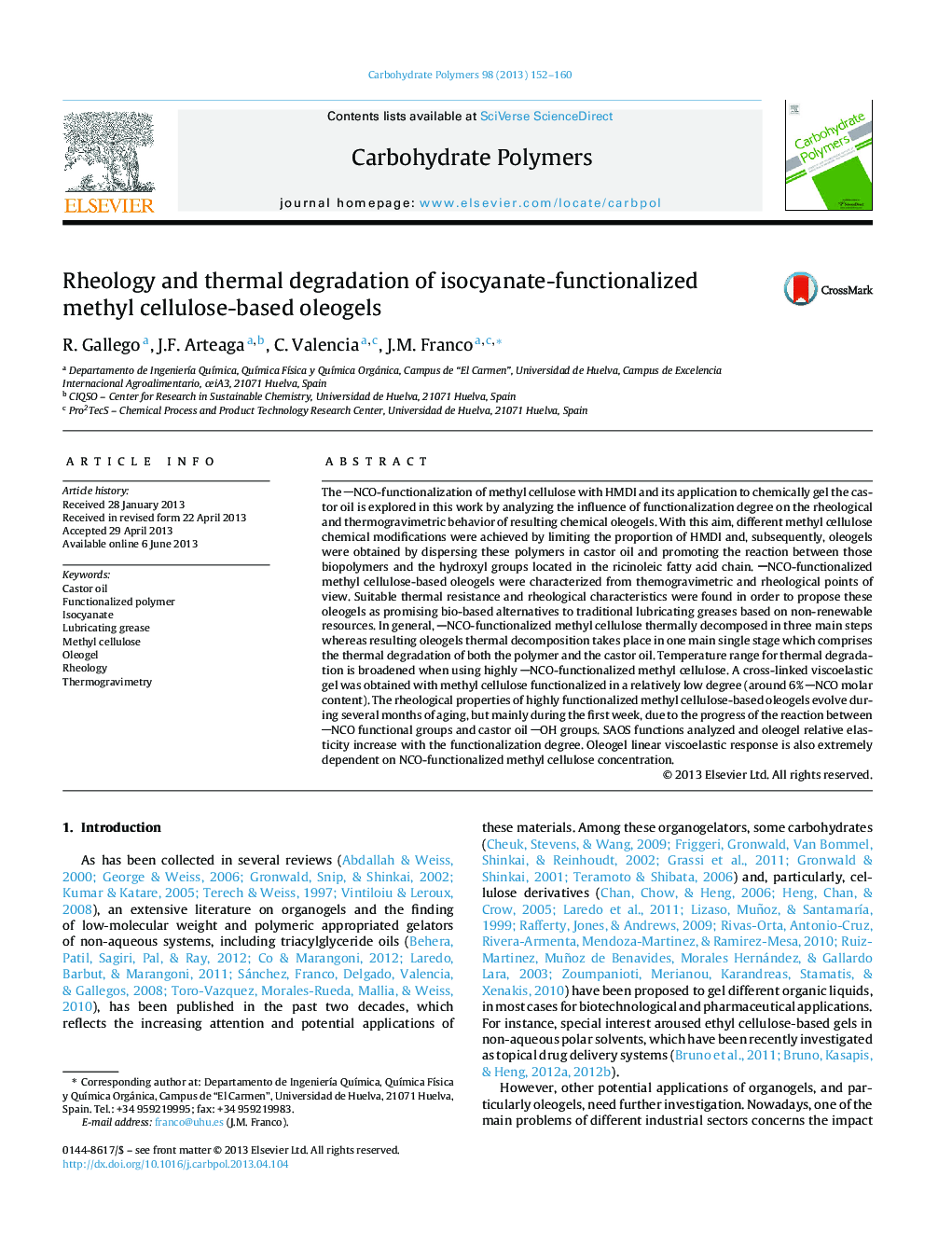| Article ID | Journal | Published Year | Pages | File Type |
|---|---|---|---|---|
| 10603262 | Carbohydrate Polymers | 2013 | 9 Pages |
Abstract
The NCO-functionalization of methyl cellulose with HMDI and its application to chemically gel the castor oil is explored in this work by analyzing the influence of functionalization degree on the rheological and thermogravimetric behavior of resulting chemical oleogels. With this aim, different methyl cellulose chemical modifications were achieved by limiting the proportion of HMDI and, subsequently, oleogels were obtained by dispersing these polymers in castor oil and promoting the reaction between those biopolymers and the hydroxyl groups located in the ricinoleic fatty acid chain. NCO-functionalized methyl cellulose-based oleogels were characterized from themogravimetric and rheological points of view. Suitable thermal resistance and rheological characteristics were found in order to propose these oleogels as promising bio-based alternatives to traditional lubricating greases based on non-renewable resources. In general, NCO-functionalized methyl cellulose thermally decomposed in three main steps whereas resulting oleogels thermal decomposition takes place in one main single stage which comprises the thermal degradation of both the polymer and the castor oil. Temperature range for thermal degradation is broadened when using highly NCO-functionalized methyl cellulose. A cross-linked viscoelastic gel was obtained with methyl cellulose functionalized in a relatively low degree (around 6% NCO molar content). The rheological properties of highly functionalized methyl cellulose-based oleogels evolve during several months of aging, but mainly during the first week, due to the progress of the reaction between NCO functional groups and castor oil OH groups. SAOS functions analyzed and oleogel relative elasticity increase with the functionalization degree. Oleogel linear viscoelastic response is also extremely dependent on NCO-functionalized methyl cellulose concentration.
Keywords
Related Topics
Physical Sciences and Engineering
Chemistry
Organic Chemistry
Authors
R. Gallego, J.F. Arteaga, C. Valencia, J.M. Franco,
